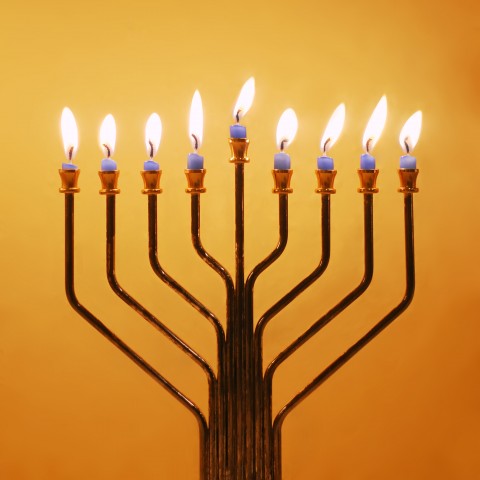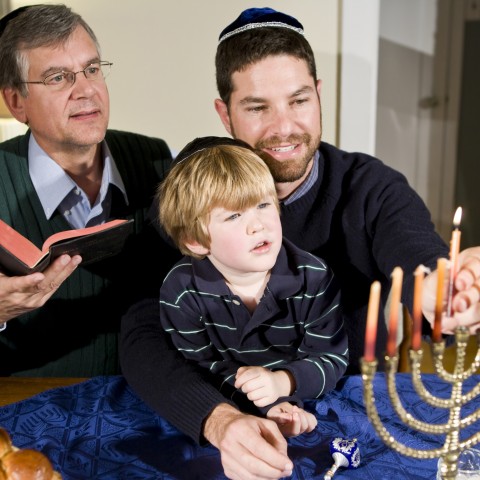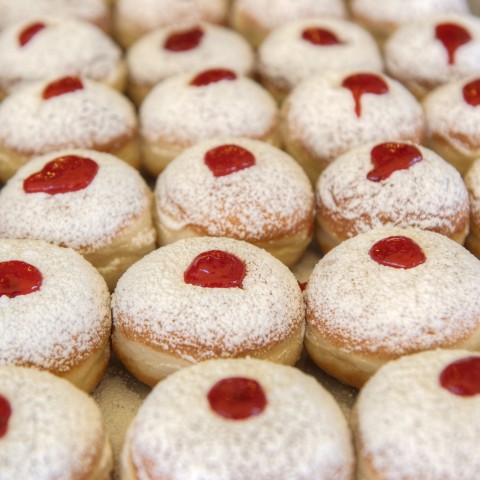Each year, Jews celebrate the Festival of Lights, better known as Hanukkah. One of the most significant Jewish holidays, Hanukkah commemorates key turning points in Jewish history.
In this article, you’ll learn about the Hanukkah story, the most popular Hanukkah traditions, and more interesting facts about the Jewish Festival of Lights.
Are you ready? Let’s get started!
1. What is Hanukkah?
The Hanukkah holiday contains eight days of “thanking.” These days were amended by the Israeli sages during the Second Temple period as a memory of the following:
- Victory in the Hasmonean Rebellion
- The reinitiation of the temple
- The miracle of the oil can
1- History of Hanukkah
In the year 167 B.C., the Hasmoneans started to lead an uprising against the Greek Seleucids ruling in Israel, which was called the Hasmonean Rebellion, or Maccabean Revolt, due to the “destruction commands.” These were prohibitions imposed by foreign rulers that kept Jews from observing the main Jewish commandments.
In the year 164 B.C., the rebels succeeded in liberating Jerusalem and the temple from the Greek regime, under which the temple was inactive for three years. The date of the holiday was set at the peak of the struggle—the days of the liberation of the temple and Jerusalem.
2- Miracle of the Oil
The story of Hanukkah’s miracle appears in the Babylonian Talmud.
According to the story, when the Hasmoneans sought to renew the activity of the temple, they ran into a problem because they didn’t have enough pure olive oil to light the lamp. Eventually, one can was found that contained oil that should have lasted only one day. But, miraculously, it was used to light the lamp’s candles for eight days.
To celebrate this miracle, sages set the Hanukkah holiday to last eight days. Lighting a Hanukkah candle is the main commandment that characterizes Hanukkah. According to the commandment, you have to light a candle on each night of Hanukkah.
2. When is Hanukkah?
Hanukkah is an eight-night period of celebration. Celebrations of Hanukkah start on the twenty-fifth day of the Hebrew month of Kislev.
For your convenience, here’s a list of this holiday’s start and end dates on the Gregorian calendar for the next ten years:
| Starts | Ends | |
|---|---|---|
| 2019 | December 22 | December 30 |
| 2020 | December 10 | December 18 |
| 2021 | November 28 | December 6 |
| 2022 | December 18 | December 26 |
| 2023 | December 7 | December 15 |
| 2024 | December 25 | January 2 |
| 2025 | December 14 | December 22 |
| 2026 | December 4 | December 12 |
| 2027 | December 24 | January 1 |
| 2028 | December 12 | December 20 |
3. Hanukkah Celebrations and Traditions
To remember the miracle of the jug of oil, Hanukkah is celebrated with the tradition of eating foods fried in oil. Some favorite Hanukkah foods include potato pancakes, doughnuts, and Sfinj—special fried doughnuts eaten by Jews of North African origin.
Another tradition meant to memorialize the miracle is playing with the Sevivon, a toy that spins about its axis. This toy has letters which appear in two versions. In Israel, the letters are Nun, Gimel, Peh, and Heh, meaning “a big miracle happened here.” In exile, the letters are Nun, Gimel, Peh, and Shin, meaning “a big miracle happened there.”
During Hanukkah, it’s customary to give the kids “Hanukkah gelt,” which are traditionally low-value coins. American chocolatiers of the twentieth century designed chocolate coins wrapped in thin silver or gold wrappers, which are sometimes used as a substitute for actual coins.
And, of course, the most important Hanukkah observation is that of lighting one of the eight candles each night.
4. Many Names
Hanukkah is known by a few other names, though these are much less popular. Do you know what they are?
- The Holiday of Lights
- The Holiday of Miracles
- The Holiday of Courage
- The Holiday of Light
5. Must-Know Vocabulary for Hanukkah
Here’s the essential Hebrew vocabulary you should know for Hanukkah!
- סופגניה (suf’ganiyah) — “Doughnut”
- חנוכה (khanuka) — “Hanukkah”
- מנורה (menorah) — “Menorah”
- שמונה לילות (shmona Leilot) — “Eight nights”
- סביבון (svivon) — “Dreidel”
- מכבים (Makabim) — “Maccabees”
- חנוכיה (Khannukiah) — “Hanukkah Menorah”
- מעטים מול רבים (me’atim mul rabim) — “The few against the many”
- סורים יוונים (Surim- yevanim) — “Syrian Greeks”
- חנוכה (khanukkah) — “Rededication”
- לאטקה (Latka) — “Potato pancake”
- שמן (shemen) — “Oil”
- נס (nes) — “Miracle”
- בית המקדש הראשון (beit ha`mikdash Ha`rishon) — “First Temple”
To hear each vocabulary word pronounced, and to read them alongside relevant images, be sure to check out our Hanukkah vocabulary list!
Final Thoughts
Hanukkah is a holiday steeped in a rich culture and significant historical moments. What are your thoughts on the Jewish Festival of Lights? Did you learn something new? We would love to hear from you in the comments!
If you’re interested in learning more about Hebrew culture and Jewish holidays, you may find the following pages on HebrewPod101.com useful:
- Hebrew Culture
- Top Five Hebrew Pop Culture Things/Icons You Need to Know About!
- What’s Your Favorite Israeli Food?
- Tourist Attractions in Israel
- Rosh Hashanah: How to Celebrate the Jewish New Year
- Day of Atonement: The Holy Day of Yom Kippur
Hebrew is an intricate language, but mastering it doesn’t have to be boring or overwhelming. With HebrewPod101.com, it can even be fun!
If you’re serious about leveling up your Hebrew skills, create your free lifetime account today!
Happy Hebrew learning! 🙂













